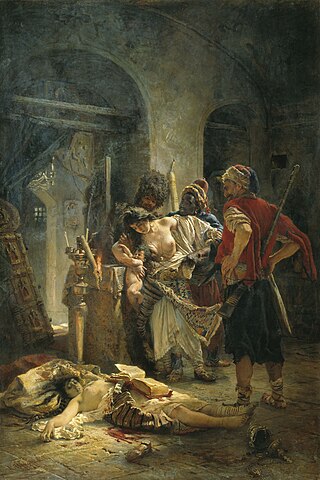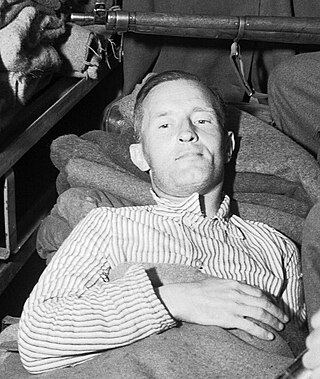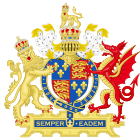Burglary, also called breaking and entering (B&E) and sometimes housebreaking, is the act of illegally entering a building or other areas without permission, typically with the intention of committing a criminal offence. Usually that offence is theft, larceny, robbery, or murder, but most jurisdictions include others within the ambit of burglary. To commit burglary is to burgle, a term back-formed from the word burglar, or to burglarize.
In English law, the benefit of clergy was originally a provision by which clergymen accused of a crime could claim that they were outside the jurisdiction of the secular courts and be tried instead in an ecclesiastical court under canon law. The ecclesiastical courts were generally seen as being more lenient in their prosecutions and punishments, and many efforts were made by defendants to claim clergy status, often on questionable or fraudulent grounds.
The Witchcraft Acts were historically a succession of governing laws in England, Scotland, Wales, Ireland, and the British colonies on penalties for the practice, or—in later years—rather for pretending to practise witchcraft.

The Buggery Act 1533, formally An Acte for the punishment of the vice of Buggerie, was an Act of the Parliament of England that was passed during the reign of Henry VIII.

Sacrilege is the violation or injurious treatment of a sacred object, site or person. This can take the form of irreverence to sacred persons, places, and things. When the sacrilegious offence is verbal, it is called blasphemy, and when physical, it is often called desecration. In a less proper sense, any transgression against what is seen as the virtue of religion would be a sacrilege, and so is coming near a sacred site without permission.

Under the law of the United Kingdom, high treason is the crime of disloyalty to the Crown. Offences constituting high treason include plotting the murder of the sovereign; committing adultery with the sovereign's consort, with the sovereign's eldest unmarried daughter, or with the wife of the heir to the throne; levying war against the sovereign and adhering to the sovereign's enemies, giving them aid or comfort; and attempting to undermine the lawfully established line of succession. Several other crimes have historically been categorised as high treason, including counterfeiting money and being a Catholic priest.

The Act of Supremacy 1558, sometimes referred to as the Act of Supremacy 1559, is an Act of the Parliament of England, which replaced the original Act of Supremacy 1534, and passed under the auspices of Elizabeth I. The 1534 Act was issued by Elizabeth's father, Henry VIII, which arrogated ecclesiastical authority to the monarchy, but which had been repealed by Mary I. Along with the Act of Uniformity 1558, the Act made up what is generally referred to as the Elizabethan Religious Settlement.

The Act of Uniformity 1558 was an Act of the Parliament of England, passed in 1559, to regularise prayer, divine worship and the administration of the sacraments in the Church of England. In so doing, it mandated worship according to the attached 1559 Book of Common Prayer. The Act was part of the Elizabethan Religious Settlement in England instituted by Elizabeth I, who wanted to unify the church. Other Acts concerned with this settlement were the Act of Supremacy 1558 and the Thirty-Nine Articles.

The Offences against the Person Act 1861 is an Act of the Parliament of the United Kingdom of Great Britain and Ireland. It consolidated provisions related to offences against the person from a number of earlier statutes into a single Act. For the most part these provisions were, according to the draftsman of the Act, incorporated with little or no variation in their phraseology. It is one of a group of Acts sometimes referred to as the Criminal Law Consolidation Acts 1861. It was passed with the object of simplifying the law. It is essentially a revised version of an earlier Consolidation Act, the Offences Against the Person Act 1828, incorporating subsequent statutes.

The Act of Uniformity 1551, sometimes referred to as the Act of Uniformity 1552, or the Uniformity Act 1551 was an Act of the Parliament of England.

The Statute of Stabbing was an Act of the Parliament of England enacted during the reign of James I and repealed in 1828. It provided that if any person stabbed "any person that hath not any weapon drawn or that hath not then first stricken the party", and they died within six months as a result, was to suffer the death penalty without being permitted benefit of clergy. Under the statute, killings subject to benefit of clergy were called manslaughters and required that a defendant prove a "sudden quarrel" or provocation. Deaths resulting from armed attacks that had been planned in advance were called murders. The Act was repealed by section 1 of the Offences against the Person Act 1828 and section 125 of the Criminal Law (India) Act 1828.

The Rebellion Act 1572, full title An Act for the punishment of such as shall rebelliously take or detain or conspire to take or detain from the Queen's Majesty any of her castles, towers, fortresses, holds, &c., was an Act of Parliament of the Parliament of England enacted during the reign of Elizabeth I. It provided that if any person was convicted of conspiring to seize or destroy any castle or fortification held or garrisoned by the Queen's forces, then they and any associates were to be judged felons and suffer the death penalty without benefit of clergy or sanctuary. If any person was to prevent the use of any royal castle or ordnance by the crown, destroy any of the Queen's ships, or prevent the use of a harbour within the realm, then they were to be considered guilty of high treason and sentenced accordingly. The Act remained in force until the death of Elizabeth in 1603, when it expired, and was formally repealed by the Statute Law Revision Act 1863.

The Hospitals for the Poor Act 1597 was an Act of the Parliament of England. It was enacted during the reign of Elizabeth I and remained in force until the 20th century.

The Murder Act 1751, sometimes referred to as the Murder Act 1752, was an Act of the Parliament of Great Britain.

The Offences Against the Person Act 1828 was an Act of the Parliament of the United Kingdom of Great Britain and Ireland. It consolidated provisions in the law related to offences against the person from a number of earlier statutes into a single Act. It was part of the criminal law reforms known collectively as "Peel's Acts", passed with the objective of simplifying the law. Among the laws it replaced was clause XXVI of Magna Carta, the first time any part of Magna Carta was repealed, and the Buggery Act 1533. It also abolished the crime of petty treason.

The Criminal Law Act 1827 was an Act of the Parliament of the United Kingdom, applicable only to England and Wales. It abolished many obsolete procedural devices in English criminal law, particularly the benefit of clergy. It was repealed by the Criminal Law Act 1967.

The 1st Parliament of Queen Elizabeth I was ruled over by Queen Elizabeth I of England on 5 December 1558 and assembled on 23 January 1559. This Parliament would restore many of the laws created by Henry VIII and the English Reformation Parliament. Queen Elizabeth's 1st Parliament passed some 24 public statutes and 17 private measures by the time it was dissolved on 8 May 1559.









